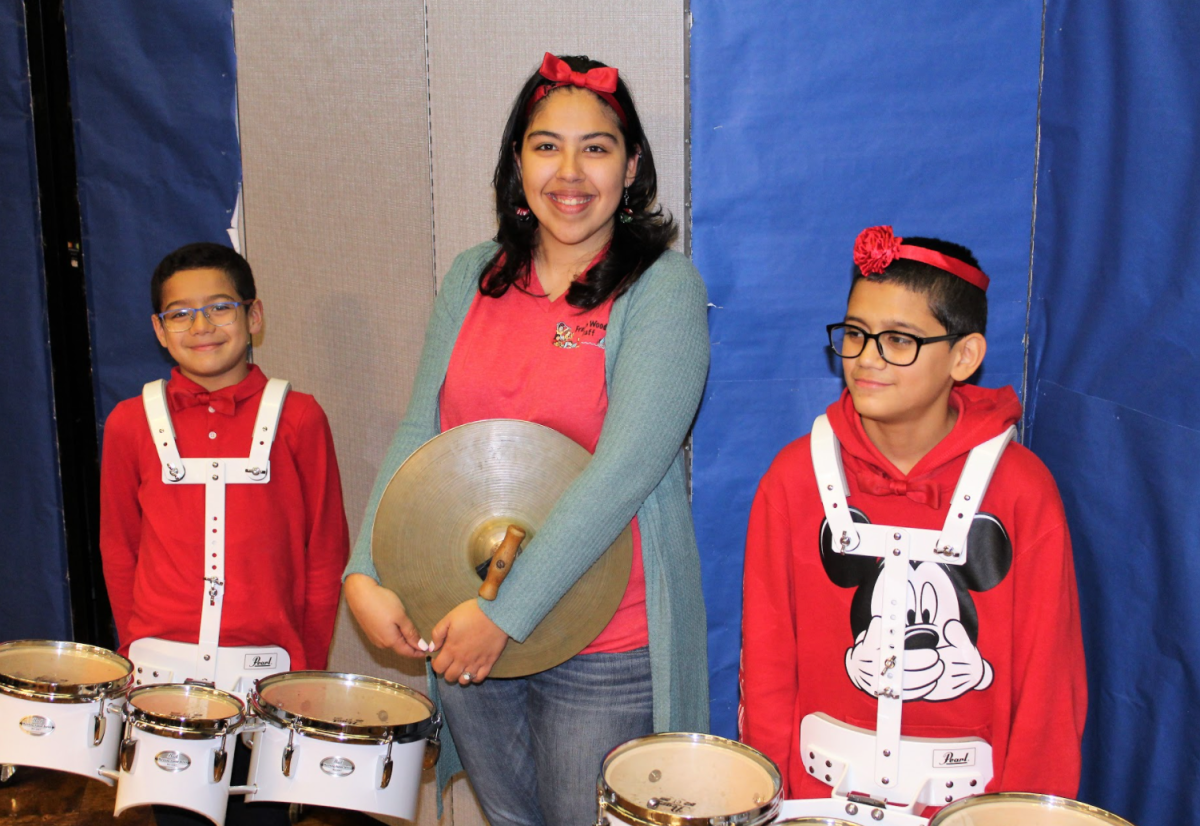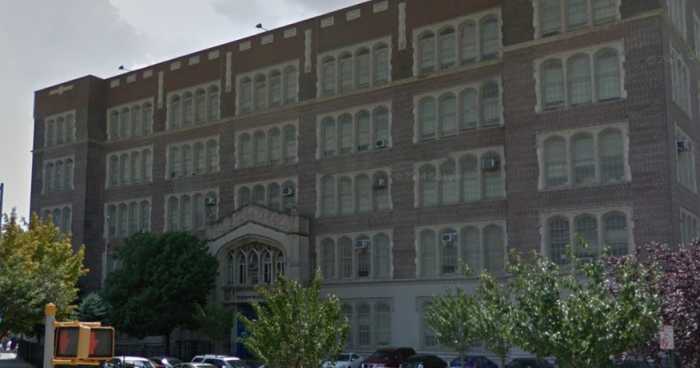Frankie Dascola, a middle school music teacher at I.S. 93 in Ridgewood, was one of 40 New York City teachers to win the State Farm Teacher Assist Grant.
The State Farm Teacher Assist Grant is awarded to 200 teachers spread throughout California, Florida, Michigan, New York and Texas. Each teacher will be receiving $2,500 to help address the societal impacts of COVID at the community level.
Dascola plans to use the money from the grant, along with other money she has raised to start many long-term diversity initiatives to support the social emotional learning curriculum, which includes Drag Queen Story of the Hour, (DQSH NYC), Social Justice Club, bilingual events and the purchasing of drum sticks.
Social emotional learning is the process through which children and adults acquire and effectively apply the knowledge, attitudes and skills necessary to understand and manage emotions; set and achieve positive goals; feel and show empathy for others; establish and maintain positive relationships; and make responsible decisions.
I.S. 93’s social emotional learning branch contains three spheres. The first one is a school-wide initiative.
“Our entire student population of 1,100 kids is exposed to social emotional learning activities and we use this curriculum we purchased called 6 Minute SEL, where students and teachers engage in videos and discussions and various activities that encourage the five subcategories of social emotional learning which [are] self empowerment, self awareness, decision making, relationship skills and social awareness — all which create a well-rounded human being,” Dascola said.
“[Anazagasty] does this great work where it basically curates and creates an open dialogue space for students as well as teaches them skills or gives them space to utilize skills they learned during the school initiative,” Dascola said.
The State Farm Teacher Assist Grant will cover work in the third sphere, student clubs and activities. In this sphere, the school will focus on the social justice/student government arm. With all the recent social injustice and civil unrest, Dascola said that I.S. 93 felt that it was important as a middle school to make sure that their students are well informed.
“We are in the restructuring of our student government which is why the amount from the State Farm Grant is going to be so important, because it’s going to allow us to bring in the resources to really get us off the ground in a meaningful way,” Dascola said.
Another club coming off the ground is their Gender Sexual Alliance club, which has the interim name Ram’s Pride. Through this club is the GSA-led initiative, DQSH NYC, which brings the drag queens story hour not only into the school but into the community as a whole. Dascola believes that though the community is affirming to a point, most of the lack of affirmation comes from simply a lack of awareness.
“By creating this educational space, it allows for not only the student to have a safe space in the GSA, it allows for the parents to be exposed and educated on queer issues and remove the threat of ‘my child is this, how could a parent ask their 12-year-old child?’ By us creating this space, they now get to ask an adult, ‘Hey, what is this?’ They won’t traumatize their own child. They won’t traumatize themselves, and now there’s a community who are literally helping to raise a child,” Dascola said. “So our whole idea is to expose all the children to drag activity by grade-level opportunities, have parent outreach, as well as actually bringing in Eric Vaughan, the head of LGBT student services for the DOE, to do awareness and training with the staff to make sure our community is fully acceptant, tolerant and inclusive.”
In order to obtain the resources needed to run this initiative, I.S. 93 won the Lambda Literary Writers in School Program, which brings queer authors and queer books into the community. The school will also be using the comics and book club literature to create a space where students are able to learn about LGBT culture through history, literacy and current events.
According to The Trevor Project, the third leading cause of death in the LGBTQ community is suicide. Data shows that students without affirming households, through the national survey, there’s 29 percent homelessness. In the city of New York there is 14 percent homelessness, 30 percent of which is LGBTQ between the ages of 14 and 18 — and those are just the confirmed, self-reported cases of homelessness.
“So the reason I came up with these initiatives is because I am surrounded, as being part of the queer community, I’m surrounded by staggering data that tells us that some of our most vulnerable youth need help. So, why not?” Dascola said.
“The whole idea is to give everyone a voice, whether it’s the 10-year-old sixth-grader, or the 50-year-old parent. Everybody in our community should have an equal, reputable voice so that we then can figure out, ‘Where’s the equity?’ And that’s creating the space so that these students can find themselves, these students can flourish, even in the time of something like COVID.”
Other initiatives Dascola plans on bringing into the school include bilingual events as well as purchasing drum sticks for both in-person and remote students in order to strengthen their social emotional learning curriculum.
According to Dascola, the equipment they had in person was great, but now during the pandemic, it is not enough. Currently, I.S. 93 has students in six countries and eight states.
In Dascola’s spare time, she works with a local 3-D printing specialist to print musical instruments as well, which will lower the cost of instruments and allow each students to have an instrument of their own, lowering risks of COVID. The instruments will be made with resin, a high-quality material.
“We’re not just focused on the ELA and math of our students. We care about your whole child and to do that, we are willing to bring in certain services and initiatives that really elevate the student to empower them to find their own voice, whether that’s through social justice, or student government, or through them exploring their gender and sexuality,” Dascola said.
As of now, all of these initiatives and events will be held virtually, in order to reduce the risk and spread of COVID. They plan on making these initiatives long-term and recurring and hope to one day hold these events in person.



































